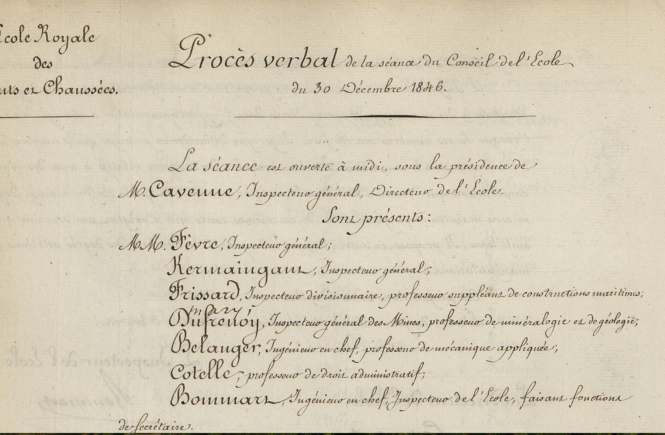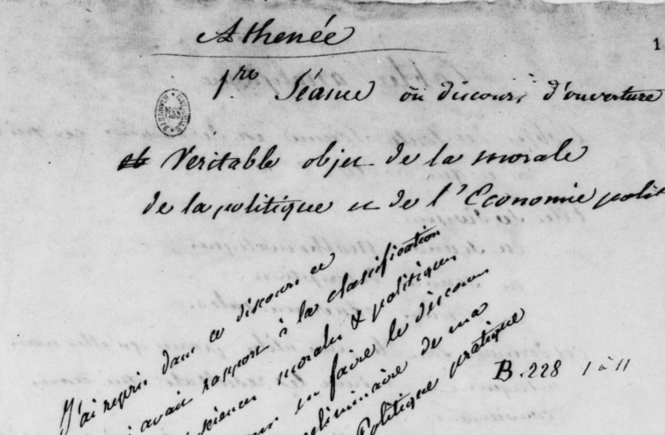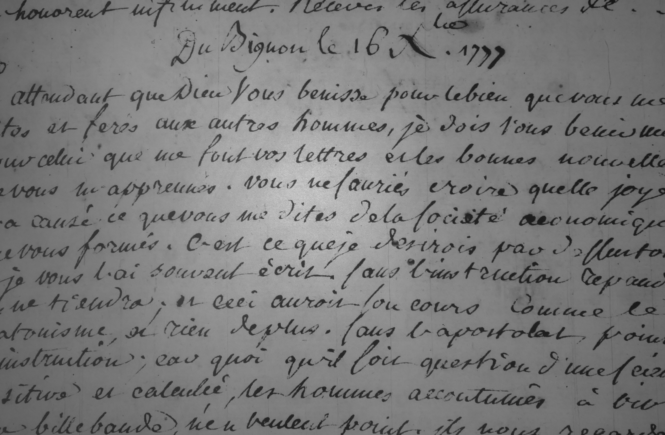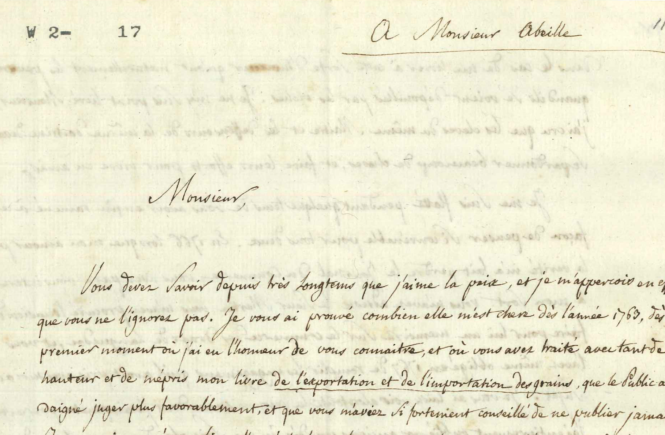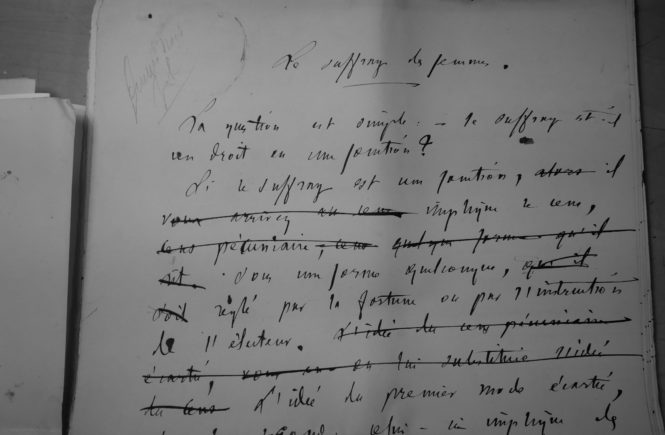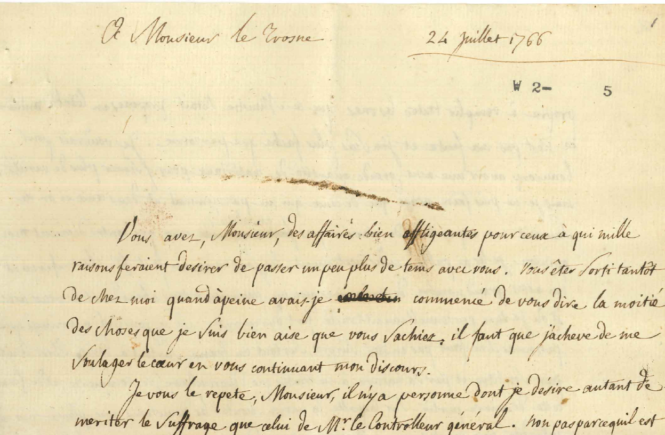The Council is therefore of the opinion that the program written by Mr. Garnier can be accepted; provided, however, that the lessons to be given on the topics of this program will be developed with great caution, and in such a way that, in all controversial questions, the facts alone will be presented in an affirmative form, and that the arguments in favor of the various systems will be exposed impartially, to the exclusion of any formal conclusion which common opinion has not definitively sanctioned.
Jean-Baptiste Say on the possibility of a society without government (1819)
Government is not an essential part of the organization of societies. I would ask you to note that I am not saying that government is useless; I say that it is not essential; that society can exist without it; and that if the associates were willing to do their business and to let me do mine, the society might as well function without government. Public authority is therefore an accident; it is an accident made necessary by our imprudence, by our injustice which leads us to infringe on the rights of our fellow man.
Letter from the marquis de Mirabeau to C. R. de Butré 16 december 1777
Dupont understands the table well and can even apply it to all cases of accounting and administrative operations, with the exception of rural activities for which he does not have the exact data, and which are nevertheless the key to everything. However, he can be regarded as a true scholar in regard to the table. La Rivière has no clue about it. He was in a hurry to use and enjoy. He even wanted to strip the doctor, who was doing it enough by himself, and then disavow him. He would have gone as far as to turn his back on his father and mother, said the doctor. Thus, although he has written under his direction and in his entresol a great work on the totality of science applied to practice, and that he can still write some very good other ones, he possesses the results and most of the principles, but he is not and will never be a literate economist. The same can be said of Turgot, who moreover adds errors to what he knows and disavow the master.
Letter from Dupont (de Nemours) to L.-P. Abeille Undated [circa the end of 1768]
You must have known for a very long time just how much I love peace, and your letter confirms me that you are indeed well aware of it. I have proved you how much peace is dear to me as soon as 1763, that is, from the first moment we met, and at a time when you looked so negatively on my book De l’exportation et de l’importation des grains, which was nonetheless very well received in the public, and which you strongly advised me never to publish….
André Morellet, On relying on the power of evidence to avoid establishing a balance of power (1767)
In the question I am dealing with here, I find myself led to criticize the system of some philosophers, who have been called Economists, and who supposed they could establish the uselessness of the balance of powers by putting forward what they called the power of the evidence; the natural and essential order of political societies; legal despotism. This is, without a doubt, a very peculiar opinion, the examination of which one could deem unnecessary. But the real services that these philosophers have rendered to the enhancement of social knowledge compel us not to ignore the paradoxes which they sometimes put forward while believing to be spreading useful truths. […]
French classical liberals and the issue of women’s rights
It is tempting for a liberty-minded historian to leave untouched the comforting presumption that French classical liberals, who championed freedom for the individual in the 17th, 18th and 19th centuries, must have upheld women’s rights too. Contemporary studies, while often obliterating the role of men in the development of feminist rhetoric, have found occasionally in the history of ideas some remarkable advocates well ahead of their times, and they have offered them as objects of uncritical admiration, in a sort of reconciliatory carnival. One easily concludes that feminism was burgeoning in every century, and that the rising tide was lifting up all boats. […]
The United States through the eyes of French classical liberalism
In the 18th and 19th centuries, French classical liberals have often seen the United States as an example and a model. Yet, if some have loved this country in a sort of long-distance relationship, others have actually made the travel and have written detail accounts. In this article, Benoît Malbranque examines the praises and criticisms put forward by authors such as Volney, Tocqueville or Gustave de Molinari, regarding the social and economic situation of the United States.
Letter from Dupont (de Nemours) to G.-F. Le Trosne July 24th, 1766
Letter from Dupont (de Nemours) to G.-F. Le Trosne July 24th, 1766 translated by Benoît Malbranque [Eleutherian Mills Historical Library, Winterthur Manuscripts, W2-5.] To Mr. Le Trosne 24 July 1766 You have very distressing affairs, Sir, for those who would have a thousand reasons to wish to spend a little more time with you. You left my house when I had barely started to tell you half of the things that I had to say; I must finish relieving my heart by continuing my speech to you. Let me repeat, Sir, that there is no one whom I desire to […]
Molinari’s failed election of 1859, by Dries Van Thielen
Unlike some French economists who centered around the Journal des Economistes (notably Louis Wolowski and Frederic Bastiat), Gustave De Molinari never was a politician. However, this does not mean that he never ran for office. In this short overview, Dries van Thielen presents De Molinari’s failed attempt to join the ranks of the liberal party in 1859.
Frédéric Bastiat, Speech on “Disarmament, Taxes, and the Influence of Political Economy on the Peace Movement” (1849)
Frédéric Bastiat, Speech on “Disarmament, Taxes, and the Influence of Political Economy on the Peace Movement”, in Report of the proceedings of the second general Peace Congress, held in Paris on the 22nd, 23rd and 24th of august 1849, London, 1849, p. 49-52 M. Frederic Bastiat, member of the French National Assembly, spoke as follows:— Gentlemen, our excellent and learned colleague, M. Coquerel, spoke to us a little while since, of a cruel malady with which French society is afflicted, namely, skepticism. This malady is the fruit of our long dissensions, of our revolutions which have failed to bring about […]

